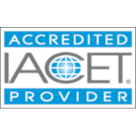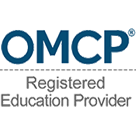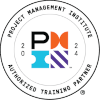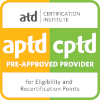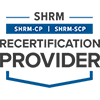Certificate Suite Details
Key Features
- Mobile-friendly
- Audio-enabled
- Badge and credit-awarding
- Real-world case studies
- Fully accessible
- Games & Flashcards
- Expert-supported
- Video content
Certificate Preview
Certificate Description
Learner Feedback
Courses Included in this Certificate
Course Description
Using social media in marketing is practically a requirement in today's highly connected digital world. But it can be confusing and complex to dive into social media marketing without some foundation in the basics. This course focuses on teaching the principles, best practices, and strategies for incorporating social media into a marketing plan. The first module teaches the various ways that social media can be used for marketing, including defining a clear brand voice, improving reputation, and engaging with customers. The course then looks at the practical way marketers can incorporate social media activities into a focused marketing plan. Learners identify how to integrate their social media with mobile, a hub website, and email marketing. They also learn how to use strategic metrics for tracking success.
Course Credits
Course Description
This course is designed to help learners develop a solid understanding of the basic concepts and techniques that they will encounter as practitioners in the marketing automation field. Module 1 explores the buying cycle and purchase funnel, along with measuring content strategies and calculating the value of customers, followers, likes, and mobile loyalists. Module 2 introduces the single customer view as it relates to cultivating leads and covers customer relationship management and email marketing, with emphasis on multi-touch campaigns and lead scoring. It also discusses loyalty programs and methods for measuring their effectiveness. Finally, learners will combine this knowledge with business concepts in order to better inform marketing decisions for their firm.
Course Credits
Course Description
This course offers an introduction to content marketing, a strategic marketing approach focused on creating and distributing valuable, relevant, and consistent content to attract and retain a clearly-defined audience. With an emphasis on key concepts, definitions, and metrics, the course examines ways that marketers can tailor their content to meet the specific needs of potential customers as they travel through the sales funnel. Learners will explore how content is used to build brand awareness and establish the brand as a trusted source of expert advice.
Course Credits
Course Description
Search Engine Optimization (SEO) encompasses the practices and metrics of trying to increase a web site's ranking with search engines. This course will engage learners through a variety of assignments that span the history and technology of the World Wide Web. Students will learn how to leverage both content and technical features in order to increase ranking while also learning about the latest tools to measure performance. These aspects are then incorporated into real-world scenarios that challenge students to apply what they have learned.
Course Credits
Course Description
This course is designed to help learners develop a solid understanding of the basic concepts and techniques that they will encounter as practitioners in the web analytics field. Topics of major concern that are discussed in Module 1 include a summary of web analytics concepts and important terms, along with the organizations and personnel who use web analytics. The course defines key performance indicators and discusses how they are chosen and implemented. A discussion of segmentation follows, with strategies for how to categorize website visitors. Students will also learn how to plan and assess website business strategies using web analytics. In Module 2, learners will explore reporting and dashboards as they relate to web analytics. Students will gain an understanding of how to plan for and design dashboards and how qualitative research offers deeper business insights. In addition, students will learn how to conduct split and multivariate testing, and implement web analytics best practices.
Course Credits
Course Description
Paid Search advertising, also called pay-per-click (PPC), is used to pay for traffic to visit a website. In this course, learners will explore search marketing, the search process, and the buying cycle. Also included is how to set up a successful PPC account, how to set and measure goals, and how to optimize keyword usage using a variety of strategies. Learners will then examine components of effective ads and landing pages, how to optimize ad targeting, and when to use search or display advertising. The course then delves into research and analysis considerations, such as report creation, improving quality score, and using A/B and multivariate ad testing. Course material is presented through the use of text, videos, games, and other engaging content.
Course Credits
Course Description
Conversion Rate Optimization is the process of steady and incremental marketing improvement to yield stronger results. In this course, learners will discover the five key steps to Conversion Rate Optimization and how the process interacts with other facets of digital marketing. Through a variety of instructive techniques, including subject matter expert videos and case-study scenarios, this course provides learners with the knowledge and resources to be more effective professionals.
Course Credits
Course Description
In the age of smartphones, it is a foregone conclusion that marketing efforts should be accessible on a mobile device. This course offers an introduction to mobile marketing, looking at strategies for reaching target audiences through multiple channels, including websites, email, social media, and mobile apps. With an emphasis on key concepts, definitions, and metrics, the course explores ways that marketers can leverage the unique benefits of mobile devices to drive profitable customer action.
Course Credits
Course Description
As consumers increasingly turn to the digital marketplace of the Internet, organizations recognize that they can better reach and connect with their customers, clients, or prospects through digital marketing. There are many benefits to effective digital marketing including improved brand perception, more efficient lead generation, and better customer satisfaction levels. That can translate into the sale of more products and services. Creating a digital marketing strategy is crucial to meeting the marketing goals of the organization. This course offers a step-by-step introduction to the process of creating such a strategy, with an emphasis on key concepts, definitions, and metrics.
Course Credits
Notes
This course has an "Ask the Expert" feature, which submits your questions directly to an expert in the field you are studying. Questions are answered as quickly as possible and usually within 24 hours.
As an Accredited Provider, MindEdge offers for its learning events that comply with the Continuing Education and Training Standard.
Learners must achieve an average test score of at least 70% to meet the minimum successful completion requirement and qualify to receive credit. Learners will have three attempts at all graded assessments.
Project Management Institute, , the Registered Education Provider logo, Project Management Professional, , Project Management Body of Knowledge, , Agile Certified Practitioner, -, Risk Management Professional, -, the Talent Triangle, and the Talent Triangle logo are marks of the Project Management Institute, Inc.
Information in this course has been taken from A Guide to the Project Management Body of Knowledge, (® Guide) - Sixth Edition, Project Management Institute Inc., 2017.
The following list outlines the you will earn for completing this course, based on the certifications you have.
